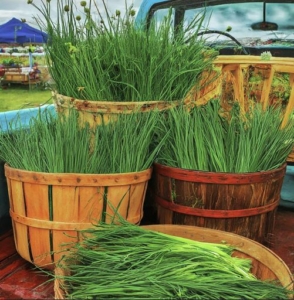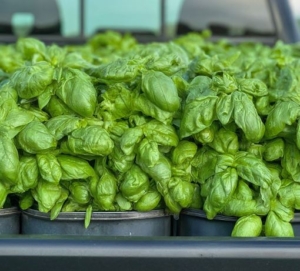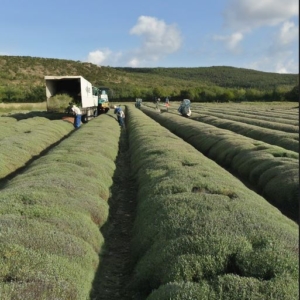Herb Export To Middle East: High-Quality Guide with 11 Tips for Buyers on Best Approaches Qatar | UAE | Saudi Arabia or KSA | Kuwait | Bahrain
When dealing with businesses dealing in herb export to Middle East, including large companies, distributors, and specialized importers that supply herb exports to the Middle East, there are guidelines that you can follow to grow your business and get consistent supplies of high-quality herbs. This guide by Mulberry Growers, a company that exports herbs (basil, oregano, rosemary, chives, tarragon, and thyme), will show you exactly what to do to engineer a stable business of herbs in the middle East and get reliable sources.


Seek Partnerships and Collaborations in Herb Export to Middle East
Forming strategic alliances can provide a significant edge for businesses that rely on herb export to Middle East markets or those importing herbs into the Middle East. These partnerships allow for the integration of best business practices, research and development into your product offerings, ensuring they meet the highest quality and efficacy standards. By collaborating with knowledgeable companies and entities, companies gain access to valuable insights and innovations that can enhance the value of their herbs, improve product formulations, and stay ahead of market trends. Such alliances can also offer credibility and foster trust with potential clients in the region.
Partnering with other brands for joint marketing initiatives can amplify your reach and impact in the Middle Eastern herb market. Joint ventures allow for shared resources and combined marketing efforts, which can lead to increased brand visibility and consumer engagement. By collaborating with complementary brands or companies in related industries, you can tap into new customer bases and enhance your marketing strategy. This synergy not only maximizes the effectiveness of promotional activities but also helps in building a stronger market presence. Mulberry Growers is open for such partnerships.
Working with research entities on herb-related studies and innovations can drive significant growth for businesses that rely on herb export to Middle East markets looking to import herbs into the Middle East. These collaborations can lead to the development of new products, improved formulations, and enhanced understanding of herb benefits and applications. Engaging in research partnerships allows companies to stay at the forefront of industry advancements and address emerging trends and consumer demands. Such collaborations also facilitate the creation of evidence-based marketing materials, which can bolster your product’s reputation in the market.
When Dealing in Imported Herbs, Develop Your Brand
Creating a strong brand identity is crucial for herb products entering the Middle Eastern market. Strategies for establishing a compelling brand include developing a unique value proposition, designing an impactful logo, and crafting a memorable brand story. Consistent branding across all channels helps in building recognition and trust with your target audience. Emphasizing quality, authenticity, and cultural relevance in your brand messaging can differentiate your products from competitors and establish a strong market presence in the region.

Some traders and businesses that rely on herb export to Middle East markets develop programs to build and maintain brand loyalty, which is essential for businesses that rely on herb export to Middle East markets dealing with herb export to the Middle East. Implementing loyalty programs, such as reward points, exclusive offers, and personalized discounts, can encourage repeat purchases and enhance customer retention. These programs not only increase customer satisfaction but also foster a sense of community around your brand. Tailoring loyalty initiatives to reflect local preferences and cultural norms can further strengthen customer relationships and drive long-term brand allegiance.
Rebranding herb products may become necessary to adapt to evolving market demands in the Middle East. When considering a rebrand, assess market trends, consumer feedback, and competitive positioning to ensure that your new brand identity resonates with your target audience. Effective rebranding involves updating product packaging, revising marketing materials, and refining your brand’s messaging to better align with current market expectations. A well-executed rebrand can revitalize your product’s image, attract new customers, and reinforce your market position.
Import and Export Logistics
Addressing logistical challenges is critical for businesses that rely on herb export to Middle East markets involved in the import and export of herbs to the Middle East. Challenges such as transportation delays, storage conditions, and supply chain disruptions can impact product quality and delivery timelines. Developing robust logistics strategies, including reliable shipping partners and efficient warehousing solutions, can help mitigate these issues. Some companies that supply these herbs, including Mulberry Growers, are investing in technology for tracking and managing shipments can further enhance operational efficiency and ensure timely delivery of high-quality herbs to your clients.
Navigating customs procedures and regulations is a key aspect of the herb trade in the Middle East. Understanding and complying with the specific requirements for importing and exporting herbs, including documentation, tariffs, and inspections, is essential for smooth operations. Engaging with customs experts or logistics providers who are well-versed in regional regulations can facilitate the clearance process and minimize potential delays. Ensuring compliance not only prevents legal complications but also builds trust with your clients by ensuring reliable and efficient service.

Strategies for optimizing distribution networks can significantly reduce costs and improve efficiency for businesses that rely on herb export to Middle East markets importing herbs into the Middle East. Streamlining distribution processes involves evaluating and enhancing supply chain logistics, selecting optimal transportation routes, and leveraging technology for inventory management. Collaborating with local distribution partners who have expertise in the regional market can also enhance your distribution strategy. Effective optimization ensures that herbs reach their destination promptly and in optimal condition, thereby meeting client expectations and maintaining high service standards.
Cultural Adaptation for Your Products
Understanding and catering to cultural preferences and taboos related to herbs is crucial for businesses that rely on herb export to Middle East markets targeting the Middle Eastern market. Different cultures have unique attitudes and beliefs about herbs, which can influence their acceptance and use. Conducting market research to identify these cultural nuances and incorporating them into your product offerings and marketing strategies can enhance your appeal. Tailoring your approach to respect and align with local traditions ensures that your herb products are well-received and can foster positive relationships with consumers.
Customizing herb products to fit regional tastes and traditions is essential for success in the Middle Eastern market. Adapt your product formulations, packaging, and branding to meet local preferences and cultural norms. This may involve modifying flavors, incorporating traditional herbs, or adjusting packaging designs to align with regional aesthetics. By offering products that resonate with local consumers and reflect their cultural values, you can strengthen your market position and enhance consumer satisfaction.
Developing culturally sensitive marketing strategies is vital for effectively reaching audiences in the Middle East. Craft your marketing messages and campaigns to respect and reflect local customs, values, and sensitivities. Avoiding stereotypes and ensuring accurate representation in your advertising can prevent miscommunications and build a positive brand image. Engaging with local marketing experts or consultants can provide valuable insights into cultural nuances and help tailor your approach to resonate with the target audience, thereby enhancing your market impact.
Ethical Sourcing of Herb Export to Middle East
Fair Trade Practices: When selecting herb importers, it’s crucial to ensure that fair trade practices are upheld throughout the supply chain. Fair trade ensures that producers receive fair compensation, working conditions are humane, and environmental standards are met. For businesses that rely on herb export to Middle East markets in the Middle East, partnering with suppliers who adhere to these practices not only supports ethical standards but also enhances the brand’s reputation. By engaging in fair trade, companies contribute to sustainable development and build trust with consumers who are increasingly concerned about the ethical implications of their purchases.
Community Impact: Evaluating the impact of herb sourcing on local communities is a key factor in selecting suppliers. Ethical sourcing should involve assessing how herb production affects the livelihoods of local populations. Businesses that rely on herb export to Middle East markets should ensure that their suppliers engage in practices that positively impact the community, such as creating jobs, supporting local economies, and improving living standards. By prioritizing suppliers who invest in community development and welfare, businesses that rely on herb export to Middle East markets in the Middle East can enhance their corporate social responsibility profile and foster stronger relationships with stakeholders.
Supplier Audits: Conducting regular supplier audits is essential to ensure that ethical practices are consistently followed throughout the supply chain. Audits help verify that suppliers adhere to agreed-upon standards regarding labor conditions, environmental impact, and fair-trade principles. For Middle Eastern businesses that rely on herb export to Middle East markets, implementing rigorous audit procedures can help mitigate risks associated with unethical sourcing and maintain a high standard of quality and integrity. Transparent auditing processes not only ensure compliance but also demonstrate a commitment to ethical practices to consumers and partners.
Focusing on Consumer Health Trends when Sourcing from Herb Export to Middle East
Functional Foods: The rise of functional foods is revolutionizing the health and wellness industry, with herbs playing a significant role. Functional foods are those that provide health benefits beyond basic nutrition, such as improving immune function or reducing inflammation. Middle Eastern businesses that rely on herb export to Middle East markets looking to import herbs should focus on those with proven functional benefits to meet the growing consumer demand for health-enhancing products. Incorporating such herbs into their offerings can help businesses that rely on herb export to Middle East markets cater to health-conscious consumers and capitalize on this expanding market trend.

Preventive Health: Herbs are increasingly being recognized for their role in nutrition for preventive health and wellness. Consumers are turning to herbs not just for treating ailments but for preventing health issues before they arise. Middle Eastern businesses that rely on herb export to Middle East markets should consider this shift in consumer behavior when selecting herb suppliers. Offering herbs known for their preventive health benefits can position a business as a leader in wellness and attract consumers interested in maintaining their health through natural remedies. This approach aligns with the growing trend toward proactive health management.

Personalized Nutrition: Personalized nutrition is becoming a significant trend in the health sector, with herbs playing a pivotal role. As consumers seek tailored health solutions based on their individual needs, herbs can offer customized benefits such as targeted nutrient support or specific therapeutic properties. For businesses that rely on herb export to Middle East markets in the Middle East, incorporating herbs that cater to personalized nutrition can enhance their product offerings and appeal to a market that values individualized health solutions. This trend highlights the importance of selecting herbs that align with diverse consumer health profiles.
Brand Collaborations
Co-Branding Opportunities: Co-branding opportunities with complementary products can significantly enhance a herb brand’s market presence. By collaborating with brands that offer related products, such as health supplements or organic foods, businesses that rely on herb export to Middle East markets can create synergistic effects that attract a broader audience. In the Middle East, where brand alliances can drive consumer interest, leveraging co-branding strategies can lead to increased visibility and shared marketing resources. This approach allows brands to capitalize on each other’s strengths and reach new customer segments effectively.
Cross-Promotions: Utilizing cross-promotional strategies can boost herb brand visibility and engagement. By partnering with brands that share a similar target market but offer different products, businesses that rely on herb export to Middle East markets can create joint marketing campaigns that highlight the benefits of both brands. For Middle Eastern businesses that rely on herb export to Middle East markets, cross-promotions can include joint events, bundled offers, or shared advertising. This collaborative approach helps in reaching a wider audience and enhancing brand recognition, leading to increased sales and customer loyalty.
Joint Ventures: Forming joint ventures with other companies can be a strategic move to expand market reach and enhance product offerings. In the Middle East, where market dynamics are rapidly evolving, joint ventures allow businesses that rely on herb export to Middle East markets to pool resources, share expertise, and enter new markets more effectively. For herb businesses that rely on herb export to Middle East markets, partnering with companies that complement their product range or offer access to new distribution channels can lead to accelerated growth and increased market penetration. Joint ventures provide a platform for innovation and collaborative success.
Supply Chain Resilience
Managing PR Crises: Effective management of public relations crises is crucial for maintaining a herb brand’s reputation. When issues arise, such as product recalls or quality concerns, a well-prepared crisis communication plan helps address problems promptly and transparently. For businesses that rely on herb export to Middle East markets in the Middle East, having a clear strategy to manage PR crises ensures that the company can handle negative situations effectively, minimize damage, and maintain consumer trust. Proactive crisis management helps in preserving the brand’s credibility and fostering resilience.
Transparency in Communication: Maintaining transparency in communication during a crisis is essential for building and retaining consumer trust. For Middle Eastern businesses that rely on herb export to Middle East markets, being open and honest about the nature of the crisis, the steps being taken to resolve it, and how it affects consumers is critical. Transparent communication helps to prevent misinformation, demonstrates accountability, and reassures customers that the company is taking appropriate actions. This approach is key to sustaining long-term consumer loyalty and confidence, even in challenging situations.
Rebuilding Trust: Rebuilding consumer trust after a crisis requires a strategic approach and consistent efforts. For businesses that rely on herb export to Middle East markets in the Middle East, this involves acknowledging past issues, demonstrating improvements, and maintaining open communication with customers. Steps such as implementing enhanced quality control measures, offering compensatory benefits, and reinforcing ethical practices can help restore confidence. By showing a commitment to addressing past mistakes and improving future operations, businesses that rely on herb export to Middle East markets can rebuild trust and strengthen their relationship with consumers over time.
Seasonal Marketing Campaigns
Seasonal Promotions: Developing marketing campaigns tied to seasonal trends and events can significantly boost herb sales. For Middle Eastern businesses that rely on herb export to Middle East markets, aligning promotions with local festivals, holidays, or seasonal changes allows for targeted marketing efforts that resonate with consumers. Seasonal promotions create a sense of urgency and relevance, encouraging customers to purchase herbs that complement specific times of the year. By capitalizing on these opportunities, businesses that rely on herb export to Middle East markets can increase visibility, drive sales, and connect with consumers in a meaningful way.
Holiday Products: Creating special herb products for holidays and seasonal celebrations offers a unique opportunity to attract consumers. For businesses that rely on herb export to Middle East markets in the Middle East, crafting holiday-themed herbs or blends can appeal to festive shoppers looking for distinctive gifts or seasonal health solutions. Developing limited-edition products that align with holiday traditions and preferences can enhance brand appeal and drive sales. This approach allows businesses that rely on herb export to Middle East markets to stand out in a competitive market and capitalize on the seasonal shopping surge.
Weather-Related Trends: Adapting marketing strategies to seasonal weather changes can optimize herb sales throughout the year. For Middle Eastern businesses that rely on herb export to Middle East markets, understanding how weather conditions impact consumer preferences and health needs is crucial. For instance, promoting herbs that offer cooling benefits during hot weather or boosting immune support during colder months can align with consumer needs. Tailoring marketing campaigns to reflect weather-related trends helps in addressing specific consumer requirements and enhancing product relevance.
Retail Space Optimization
Store Layout Design: Optimizing store layout to enhance herb product visibility and accessibility is crucial for driving sales. For businesses that rely on herb export to Middle East markets in the Middle East, an effective store layout ensures that herb products are strategically placed to attract customer attention and encourage purchases. Consider factors such as high-traffic areas, clear signage, and attractive displays to maximize the impact of herb products. A well-designed layout not only improves the shopping experience but also increases the likelihood of impulse buys and repeat customers.
In-Store Promotions: Designing effective in-store promotions and displays for herbs can significantly boost sales and brand visibility. For Middle Eastern businesses that rely on herb export to Middle East markets, creative promotions such as special discounts, bundle offers, or interactive displays can engage customers and encourage them to explore herb products. Incorporating elements like educational information about the benefits of herbs or sampling opportunities can enhance the effectiveness of in-store promotions. Engaging displays and promotions drive consumer interest and increase foot traffic.
Shelf Space Management: Effective shelf space management is essential for maximizing the visibility and sales of herb products. For businesses that rely on herb export to Middle East markets in the Middle East, this involves strategically arranging herb products to ensure they are easily accessible and attractively presented. Regularly reviewing shelf space allocation, optimizing product placement, and maintaining well-organized displays help in managing inventory efficiently and enhancing customer experience. Proper shelf space management supports sales growth and ensures that popular products are readily available.
Consumer Digital Engagement
Interactive Content: Creating interactive content, such as quizzes or videos, can significantly enhance consumer engagement online. For businesses that rely on herb export to Middle East markets in the Middle East, interactive content offers an opportunity to captivate audiences, educate them about herb products, and gather valuable insights. Engaging content not only attracts potential customers but also encourages them to interact with the brand on a deeper level. By leveraging digital tools to create compelling and interactive experiences, businesses that rely on herb export to Middle East markets can build stronger connections with their audience and drive engagement.
Virtual Events: Hosting virtual events, webinars, and live streams provides a platform for businesses that rely on herb export to Middle East markets to connect with consumers in real time. For Middle Eastern businesses that rely on herb export to Middle East markets, virtual events offer an opportunity to showcase herb products, share expert knowledge, and engage with a broader audience. These events can include product demonstrations, Q&A sessions, or educational workshops on herbal benefits. Virtual engagement helps in building brand awareness, fostering consumer relationships, and driving interest in herb products.
Customer Feedback Tools: Implementing digital tools for gathering and analyzing customer feedback is vital for understanding consumer preferences and improving products. For businesses that rely on herb export to Middle East markets in the Middle East, utilizing online surveys, review platforms, and social media monitoring tools can provide valuable insights into customer experiences with herb products. Analyzing this feedback helps in identifying areas for improvement, addressing consumer concerns, and tailoring offerings to meet customer needs more effectively. Digital feedback tools are essential for maintaining customer satisfaction and driving business growth.
Contact Us – We do Herb Export to the Middle East
We supply businesses with these herbs: basil, sage, oregano, rosemary, thyme, tarragon, and chives in bulk.

To share your demands or make inquiries, start here:
- Our Email: commercial@mulberrygrowers.com
- Call/WhatsApp: +254 716 150 111 OR +254 748 897 749
- Website: www.mulberrygrowers.com